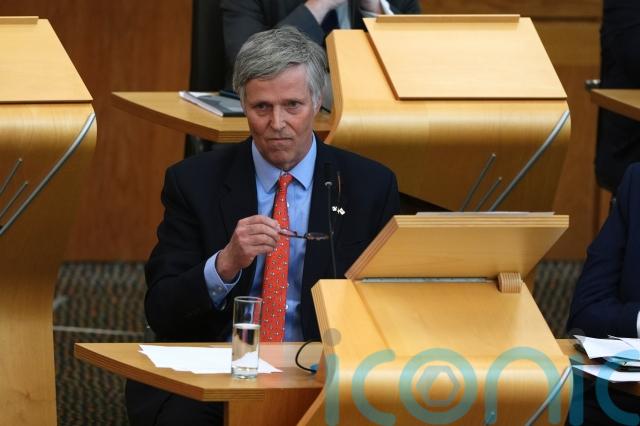
Making sure electricity costs come down will be a key part of climate change adaptation, MSPs have heard.
Richard Millar, head of adaptation at the Climate Change Committee (CCC), said electricity prices are “really key to the transition” and the CCC has set out this advice to the UK Government.
He appeared before Holyrood’s Net Zero, Energy and Transport Committee on Tuesday after it agreed to hold an evidence session with the CCC on Scotland’s readiness to adapt to the impacts of climate change.
Committee convener and Conservative MSP Edward Mountain said he is concerned about the push to install heat pumps in homes when electricity costs are higher than gas.
He asked if this issue would be a “stumbling block” to climate change adaptation.

He said: “My fear is that a lot of the heat pumps and the air source pumps are driven by electricity and the price for electricity remains stubbornly high. If you’re going to install a heat pump in a house you might be looking at £17,000 and then massive electricity bills. Is that a stumbling block?”
Mr Millar said while there is a need to electrify systems, this must be done “in parallel” with making electricity cheaper.
He said: “Electricity prices is really key to the transition and in our last package of advice that set out the pathways for our advice on the UK’s seventh carbon budget and the carbon budgets in Scotland, our main recommendation in Scotland was making electricity cheaper for this reason.
“Looking at the challenges of the legacy costs on electricity and potentially how you can rebalance some of those costs across gas and electricity. We know that the efficient thing to do in most of these systems is increasingly to electrify stuff; electrify heat, electrify transport.
“But that needs to be done in parallel with making sure that electricity costs are cheap for people.”
The Climate Change Committee was established under the Climate Change Act 2008.
It is an independent body that advises the UK and devolved governments on reducing emissions and adapting to the impacts of climate change.
Mr Millar told the committee more action needs to be taken globally to prevent further emission rises and to adapt to the consequences of climate change.
He said his advice to the UK Government in October was that without any change globally, there could be “two to three degrees of warming realised” by the end of the century.
He said: “Pledges from countries around the world show global emissions holding roughly constant at where they are now, and if we were to say well what’s the climate consequence of that, that means continued warming and warming approaching 1.5C in the 2030s and then continuing on to 2C above pre-industrial levels by 2050.
“The further you take this out the harder it gets to project with certainty, but if you were continuing to the end of the century without significant increases in ambition, you might be looking at 2-3C of warming realised globally by the end of the century.”
The Scottish Government plans to reach net zero by 2045. One of the main ways it plans to reach this target is by reducing greenhouse gas emissions through a just transition to a net zero economy and society moving away from oil and gas usage.
Recent support has also been highlighted towards developing countries to tackle climate change through the Climate Justice Fund.
Subscribe or register today to discover more from DonegalLive.ie
Buy the e-paper of the Donegal Democrat, Donegal People's Press, Donegal Post and Inish Times here for instant access to Donegal's premier news titles.
Keep up with the latest news from Donegal with our daily newsletter featuring the most important stories of the day delivered to your inbox every evening at 5pm.